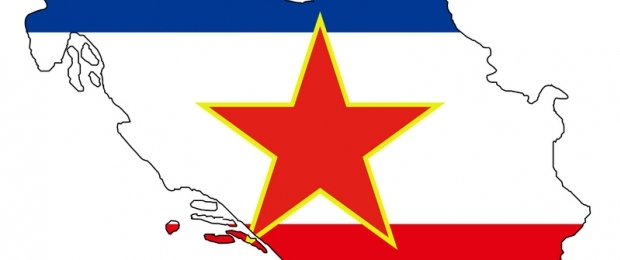
Serbia and the EU
Five years ago, NATO bombed Serbia and killed around 500 civilians. Today, Slobodan Milosevic and Vojislav Seselj (the leader of the ultra-nationalist Radicals) are in custody in The Hague while a convinced democrat, Vojislav Kostunica, is prime minister. The talk in Belgrade is of joining both the EU and NATO.
Yet despite this progress, other Balkan states are moving far ahead of Serbia on the path towards those two clubs. Serbia and Bosnia are the only countries in the region to be neither in NATO's Partnership for Peace, nor to have started negotiating a Stabilisation and Association Agreement, which would define trade and political links with the EU. The biggest reason for Serbia's exclusion is that Kostunica has cut back on co-operation with the war crimes tribunal in The Hague.
Belgrade's democrats implore the EU and NATO to embrace Serbia, claiming that hard-line nationalists will profit from its isolation. Many democratic politicians argue that the EU should relax the conditionality that governs its dealings with Serbia, whereby the latter only gets trade, aid and political ties when it complies with EU demands. But at present the EU plans to apply stricter conditionality to dealings with new neighbours such as Serbia, and rightly so.
Many Serbs regard EU membership as a right, rather than a privilege that entails obligations, and do not understand that at the moment very few EU citizens want them in. However, in the long run, especially once Turkey has started negotiating entry, EU leaders will see the point of taking in Serbia and its troubled neighbours provided they meet the 'Copenhagen criteria', especially those on democracy and human rights. Otherwise, the western Balkans could easily become a black hole on the map of Europe, and a source of crime, terrorism, ethnic strife and illegal immigration.
Nevertheless, Serbia cannot join the EU so long as uncertainty over its frontiers persists. One problem is the Serbs' uneasy union with the Montenegrins, which has complicated Serbia's ability to negotiate with Brussels. However, there is a fair chance that any dissolution of that union may be peaceful. A bigger problem is the uncertain status of Kosovo. The recent attacks on Serbs and their churches highlight the importance of settling rather than just suppressing ethnic conflict in that province.
Negotiations on Kosovo's final status are due to start in 2005. Kostunica wants to maintain Serbian sovereignty over Kosovo, but give strong autonomy to its Albanian and Serbian regions through 'cantonisation'. That is unacceptable to the Albanian community, which demands independence. But that, in turn, is unacceptable to most Serbs, who think their kin would leave an independent Kosovo.
Kosovo, unlike Bosnia, has never been a truly multi-ethnic society and may never become one. The conventional wisdom among diplomats says that partitioning Kosovo would destabilise Bosnia and Macedonia by calling into question their borders. Yet it is possible that a partition, which led to most of Kosovo becoming independent, could provide the only solution acceptable to most Serbs and most Kosovo Albanians if Belgrade and Pristina could agree on a dividing line. Such an agreement would also require neighbouring countries to declare that henceforth all borders in the region were sacrosanct. The EU would have to seal such a settlement by emphasising that it would only deal with governments that accepted those borders as permanent.
Whatever happens to Kosovo, Serbia's nationalism threatens to retard its progress towards the EU. Many Serbs do not accept that the Milosevic regime bore prime responsibility for the start of the Balkan wars of the 1990s. They feel little shame over the Srebrenica massacre and refuse to accept the truth about what happened in that benighted town. Many Serbs carry a bitter sense of victimhood, believing that their neighbours and the world's powers have abused them.
Serbs need to look forwards, towards the opportunities of European integration, rather than backwards towards the shadows of their history. They should learn to see themselves as others do and therefore understand the rationale for co-operation with the war crimes tribunal. NATO and the EU can help, by pointing to the political and economic benefits of closer ties to the rest of Europe. Serbia should emulate Turkey, its historical enemy and another strongly nationalistic country. The Turks seem prepared to meet a wide range of conditions set by the EU, to move closer to it. If the Serbs could similarly learn to soften the sharper edges of their nationalism, EU membership would become imaginable.
